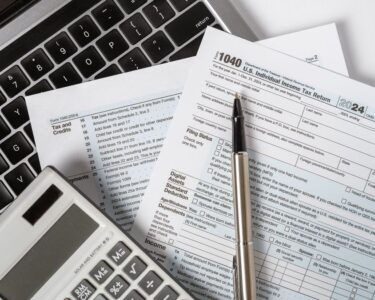A new phishing scam seems to be popping up every month, which can make it hard to stay alert. While some of these scams are more obvious than others, it can be particularly confusing when you’re the target of a phishing text that doesn’t initially seem like a scam. That’s what happened to me when I received a text message in regards to a cryptocurrency website. Wondering if you’ve also been targeted? Keep reading to learn more about the Coinbase withdrawal code scam and what to do if you’ve received the phishing text.
What is the Coinbase withdrawal code scam?
Coinbase is an American cryptocurrency exchange that allows buying, selling and storing everything from Bitcoin to Dogecoin. With more than 100 million people worldwide using it, it’s not a surprise that bad actors have decided it’s the perfect opportunity to launch a new scam.
The phishing scam has been targeting cell phone users for at least a year, with a significant uptick in reports starting in the spring. Officials around the country even began warning local residents to watch out for the scam in May 2025.
But you don’t have to be a user on the site to receive the random text. Earlier this year, one of the phishing texts popped up in my phone’s notifications. Since I had never heard of Coinbase, I was rather confused. The message also had me concerned that someone had used my information to create an account without my knowledge!
As it turns out, I was simply the target of yet another phishing attempt. With a bit of research, I was able to learn just how common this Coinbase scam has become.
How the Coinbase phishing text tries to trick you
As part of the scam, people receive a text from an unidentified U.S. number. The contents usually vary slightly, but the language typically follows the same format.
A Reddit user in a recent thread shared one example: “Your Coinbase withdrawal code is: 611835. Please do not share this code with anyone. If you have not requested this, please call : (908) 975-9814. REG: CB77190.”
If you call the provided number, you’ll be connected with an alleged “representative” who will work with you to figure out the issue with your account. During that process, however, they will likely ask for your personal and financial information or passwords to websites.
Once they receive that information, it gives the scammers a chance to commit identity theft, access your digital accounts or even steal money.
The hope is that bitcoin holders will assume someone is trying to hack their account, and in a panic, will contact the provided number. But plenty of people shared in the Reddit thread that, like me, they got the text despite not having an account. For those individuals, the scammers are likely banking on recipients calling the number to clear up any confusion.
What to do if you get a Coinbase scam text

If you receive one of these Coinbase withdrawal phishing texts, avoid responding or calling the number. You don’t want to engage with the scammers and risk giving away any personal information.
For bitcoin users, Coinbase had made it clear that you will never get this type of text about an account issue. “Remember, Coinbase will never ask for your private information such as two-factor authentication codes or private keys,” reads a comment posted by “coinbasesupprt” in another Reddit thread. “Always be cautious and verify the communication is from an official Coinbase account or email address.”
Coinbase also suggests that users share the phishing attempt with its team. Anyone who receives it is encouraged to submit a screenshot of the phishing text in a message to security@coinbase.com.
It’s also a good idea for all recipients to delete the message from their phones. Not only does this allow you to report it, it will prevent you from accidentally engaging with the fraudulent message.
If you have called a number that was provided with a Coinbase phishing text scam, it’s a good idea to change passwords for any accounts you have. You will also want to contact your bank or credit card company if you believe you provided the scammers with any financial information.
In serious cases of fraud or identity theft, reach out to your local law enforcement and the Federal Trade Commission, which can help you out.
Warning signs you’re dealing with a phishing scam
Since phishing scams are some of the most common types of scams, knowing what to look for can help you avoid becoming a victim.
Here are some of the warning signs of a phishing attempt:
- Message is sent from an unknown phone number or email account
- A sense of urgency encouraging you to act fast
- False claims about problems with payment or an account
- Requests for personal information
- Instructions on what to do next that either include a link or phone number to call
If you’re unsure about the legitimacy of a text message from a website or company, contact the official customer service number or go to the secure website to log in to your account.






